Since we’re looking at months and months of coronavirus lockdown, I’m figuring I might as well wear a face mask with a sense of style. I’m thinking either (a) Jasper Johns American flag or (b) black with white polka dots.
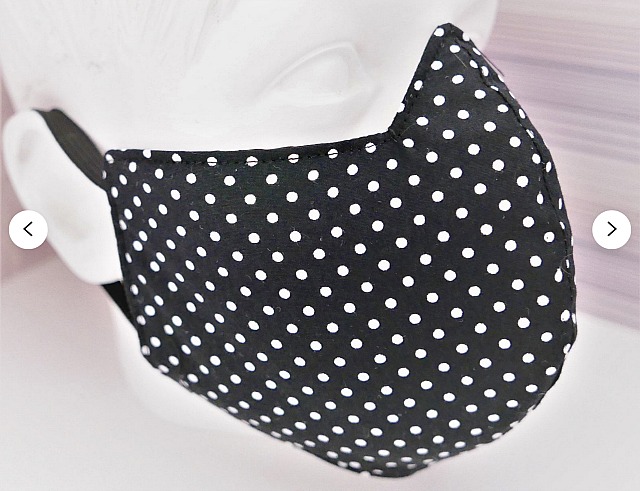
Since we’re looking at months and months of coronavirus lockdown, I’m figuring I might as well wear a face mask with a sense of style. I’m thinking either (a) Jasper Johns American flag or (b) black with white polka dots.

I was reading yesterday about Los Angeles beaches (Malibu to Venice) being fairly crowded, and I noticed a fair number of people roaming around during a brief drive to Venice and back. People jogging, shopping, walking around. Families out for air, exercise. HE to Governor Gavin Newsom: A lot of people are observing your lockdown order but a fair number are ignoring it.
Honestly? If I was Newsom I would put armed troops and tanks on the street. I would not fuck around. He predicted the other day that over half of Californians will be infected. It could be higher than that if people continue to casually hit the beaches, etc.
Note: My little drive didn’t count. I was totally isolated in the car, and stepped out only once for three or four minutes, and never came close to anyone.

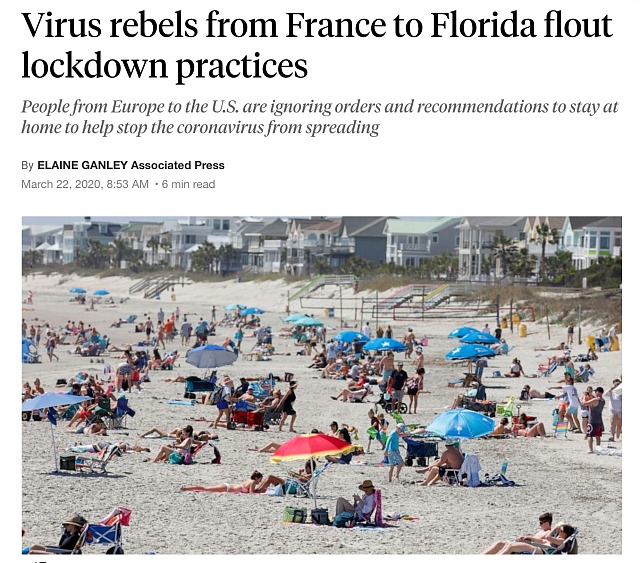
There are two reasons why I’ve never seen Anthony Mann‘s Raw Deal (’48), and why I’m not all that inclined to see it later today, despite the obviously high-quality cinematography by John Alton.
Reason #1 is that it’s never been a highly rated film — it’s basically regarded as a programmer and nowhere close to the level of Detour or They Live By Night or Gun Crazy. Reason #2 is Dennis O’Keefe, who plays the lead character, Joe Sullivan. O’Keefe was a decent actor but he simply didn’t have the X-factor — one look at the guy and you’re thinking “meh, second banana, doughy-faced, no snap.”
The most striking actors in Raw Deal are Claire Trevor and Raymond Burr.
John Alton‘s lensing achieved a certain elegance, for sure. The author of “Painting With Light” (’49), he believed that “studio lighting must always simulate natural light in texture and direction.” But he mostly shot programmers. Like O’Keefe, he was a respected second-tier guy. He worked steadily in the ’30s,’40s and ’50s (his last significant feature was Richard Brooks‘ Elmer Gantry) but he was a “house” cinematographer and not a name-brander.
When I think of Raw Deal, I think of the teaser-trailer for the 1986 Arnold Schwarzenegger film of the same name. Opening copy crawl: “They gave Schwarzenegger a raw deal. (beat, beat) Nobody gives Schwarzenegger a raw deal.”
Lewis Beale says: “Last night my wife and I watched the 1948 Anthony Mann noir Raw Deal. Solid film, kind of over-heated plot, but what makes it more than worthwhile is the immaculate b&w cinematography by the great John Alton. Every frame of this film could be mounted and put in a museum.”
HE’s most beautiful b&w films (random order): Citizen Kane, Manhattan, The Silence, The Hustler, Out Of The Past, Hud, Cold War, Ida, Odd Man Out, Only Angels Have Wings, The Lighthouse, The Train, Wings of Desire, Schindler’s List, Wild Strawberries, The Best Years of Our Lives, The Grapes of Wrath, Ed Wood, Judgment at Nuremberg, The Big Heat, How Green Was My Valley, Rebecca, Psycho, Notorious, Stardust Memories, The White Ribbon, Hour of the Wolf, Raging Bull, The Elephant Man, Dr. Strangelove.
Others?
Idris Elba: “One of the upsides of this whole drama is [that] we are forced to think together as a race. We really are.”
Oprah Winfrey: “As a human race.”
Idris Elba: “As a human race, yeah. But also our world has been takin’ a kickin’. We have damaged our world. And…no surprise!…our world is reacting to the human race. It’s no surprise that a virus has been created that’s going to slow us down. And ultimately make us think differently about our world and ourselves. To me, that’s the stand-out thing that’s very obvious. This is like the world crying out….hey, hey hey, you’re kickin’ me. What you’re doin’ is not good so I’ll get rid of you, as any organism would do. To try and get rid of an infection.”
When Elba, 47, first announced on Instagram that he’d been infected with COVID-19, I was wondering if the young-looking girl sitting behind him was his daughter. (Her name is Isan, born in ’02.) She was actually his wife, Sabrina Dhowre, a 30 year old model-actress whom he married in Marrakech last April.
I just can’t fathom why a rich actor would choose to wear a schlubby normcore T-shirt. He could wear the coolest Calvin Klein or John Varvatos three-button T-shirt…some kind of cooler-than-shit creation with a little style, something he bought in Milan or London or at a tag sale in Marin County. What’s the point of looking like some average dude from Worcester or Scotch Plains or Clearwater when you’re Ben fucking Affleck? To what end? To prove to himself that he’s average common too, just like him and the same as you?
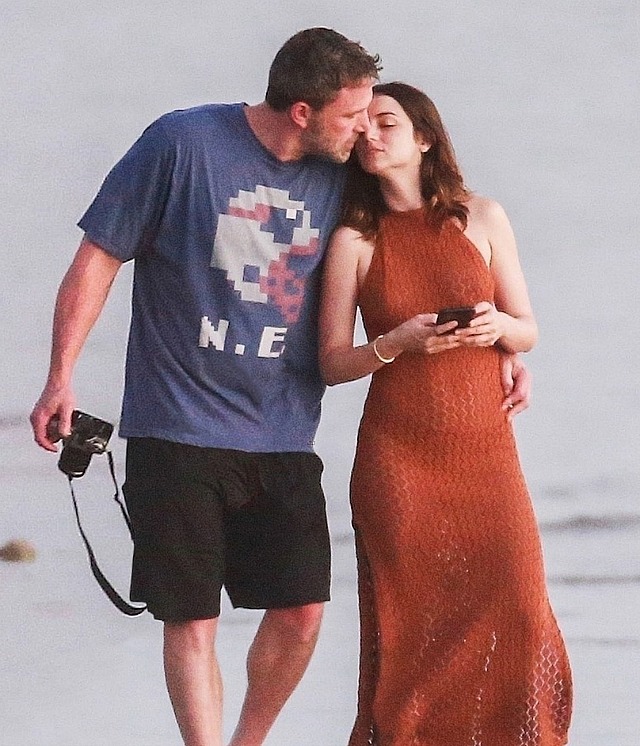
I was in this normal-seeming dream, and then it suddenly turned into a nightmare. I was a kind of gladiator in ancient Rome, and yet I was speaking to friends and acquaintances like it was 2020 America. I was dressed like Victor Mature in Demetrius and the Gladiators, and I was at some kind of party and telling people in a no-big-deal sort of way that I would soon go into the arena in a one-on-one against an opponent. The goal, I explained, would be try to hack off my opponent’s arm with my sword, or vice versa.
As the moment approached I was suddenly seized by a horrific realization that this was not just some idle fantasy but something real. I suddenly stopped being Victor Mature and became Woody Allen in Love and Death, whining and moaning in a high-pitched voice about losing my left arm and suffering terrible pain. What was I thinking? I have to get out of there and run for my life. I’m not a trained gladiator. I’ve never fought anyone with a sword and I sure as hell don’t want to cut anyone’s arm off…good God!
Then I woke up. It was 4:20 am. I had suddenly become Jimmy Stewart as he came out of his Carlota Valdez nightmare in Vertigo.
I’m presuming that the arm-hacking is a metaphor for what the coronavirus plague is doing to life in Los Angeles…to life everywhere. To calm myself down I picked up the phone and twitter-surfed for a couple of hours. I finally got back to sleep around 7 am.
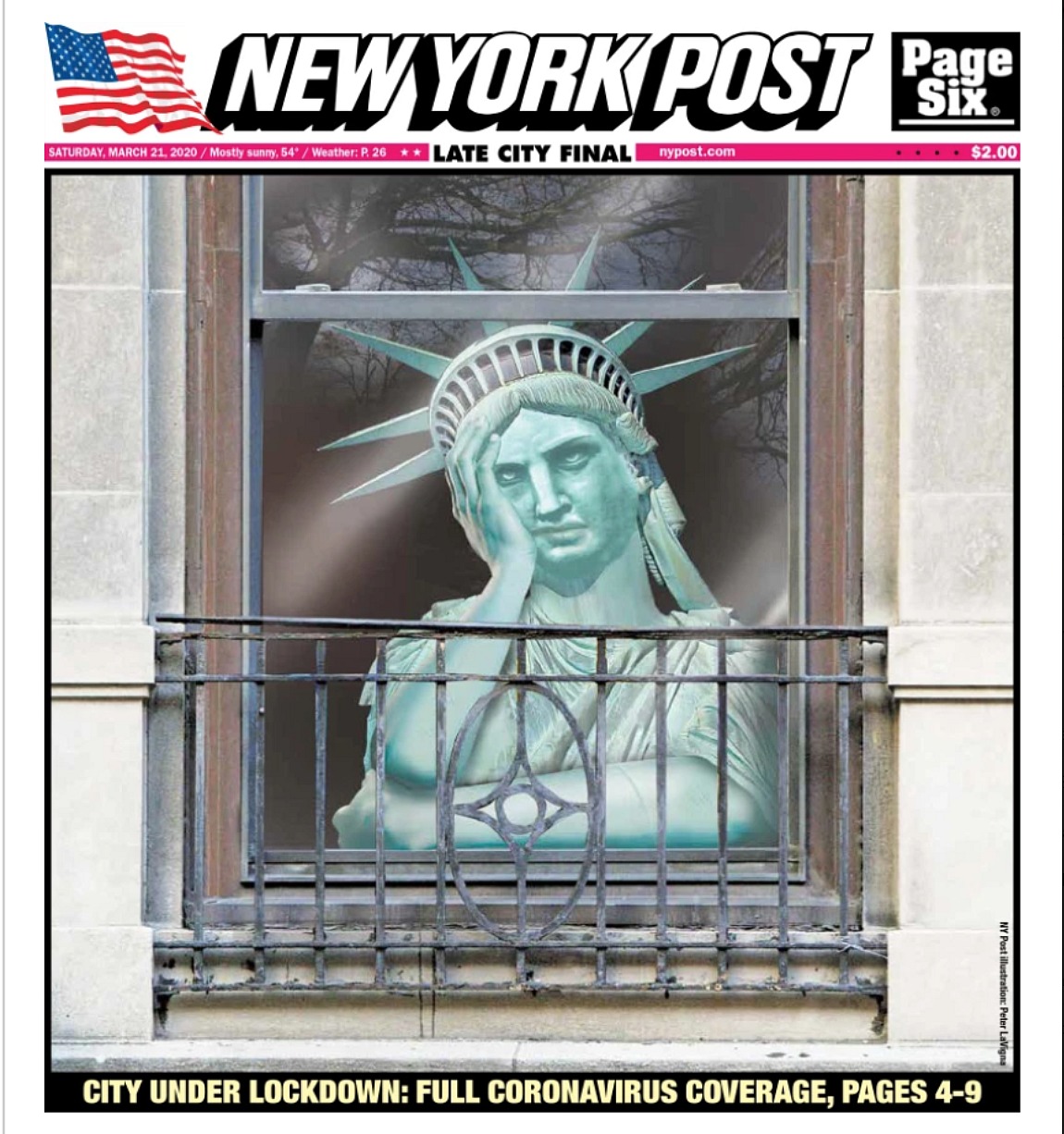
From Washington Post Rome bureau chief Chico Harlan, passed along by Tanya Sichynsky: “When a thoughtful neighbor visited earlier this week, Harlan couldn’t help but notice that he was standing quite close. As the man talked animatedly in his kitchen, Harlan, a touch paranoid, wondered if the neighbor’s voice sounded raspy.
“’This is the thing it does to you. It turns you into an asshole,’ Harlan said of the coronavirus pandemic. ‘When you start to become afraid of your own neighbors who are wonderful people, then there’s really no hope.’
“It’s the sense of safety, that ability to even briefly let his guard down, that the correspondent misses most. The outbreak has shut down Italy and killed 4,032 people there, the highest death toll of any country.
“With routines totally upended, daily life is bizarre. Apart from the handful of Italians waiting two meters apart for groceries, everyone stays inside. Harlan occasionally takes a solo jog in the mornings, an activity that may be restricted by the government at any moment. He lives across the street from a popular wine bar that, on a normal day, is brimming with stylish Italians who keep the neighborhood up into the early hours of the morning. It was the bane of Harlan and his wife’s existence. Now?
“’I’d kill for that noise, the clatter of people having a good time,’ he said.”
If it’s all the same Hollywood Elsewhere would like to move to Tahiti for two or three months, just for the privilege of walking around without a mask or surgical gloves. To the best of my knowledge only one native — French Polynesian politician Maina Sage — has been infected, and that it’s pretty much a clean-slate territory. Imagine the joy of just living without the terror.
The coronavirus claimed another 793 people today in northern Italy, including 546 deaths in the Lombardy epicenter. That country’s total death roster now stands at 4,825. The worldwide tally is 11,000, according to data collected by the Johns Hopkins University in the United States. More than 277,000 people have been infected, while some 88,000 have recovered.
From Nicholas Kristof’s N.Y. Times column, “The Best-Case Outcome for the Coronavirus, and the Worst,” posted on 3.20: “Dr. Neil M. Ferguson, a British epidemiologist who is regarded as one of the best disease modelers in the world, produced a sophisticated model with a worst case of 2.2 million deaths in the United States.
“I asked Ferguson for his best case. ‘About 1.1 million deaths,; he said.
“When that’s a best-case scenario, it’s difficult to feel optimistic.”
This morning I tapped out some thoughts about “Ruby, Don’t Take Your Love To Town” in a thread about the passing of Kenny Rogers. A melancholy country-western tune that was written by Mel Tillis, the song was first recorded by Waylon Jennings in ’66. It became a C&W hit the following year when a version by Johnny Darrell was released. The most popular version, released in ’69, was by Rogers and the First Edition.
Comment: “Sad as it is, I could never relate to the self-pitying nihilism of that song. A youngish paraplegic Vietnam veteran is not only furious but borderline suicidal over his inability to sexually perform — obviously a hopeless situation.
“The narrator’s conclusion is that his wife, Ruby, has failed him by not resigning herself to a life of loyal abstinence. And so she’s Lucretia McEvil. He’s so consumed by rage over their tragic misfortune that he’s half-contemplating killing her (‘put her in the ground’). Which suggests that he’s also an alcoholic. Or is so consumed by anger and bitterness that he’s no longer capable of compassion.
“It’s a sad and tragic bind all around and your heart goes out, but a gentleman would man up and not insist that his wife submit to a life of celibacy or at the very least limited sexual activity (I’m thinking of Jon Voight and Jane Fonda’s sex scene in Coming Home as well as Marlon Brando and Theresa Wright’s situation in The Men) and not having children.
“You initially feel sorry for them both, but toward the song’s finale it’s impossible to side with a would-be murderer. Which is why I always felt pushed away by it. Who wouldn’t be?”
HE commenter Mike Schaefer wrote that “everything you mentioned is precisely what makes [the song] great. It’s easily one of the darkest lyrics ever to hit the Top Ten.”
In 1966 three major films competed for what was then called the Best Foreign Language Feature Oscar — Claude Lelouch‘s A Man and a Woman**, Milos Forman‘s Loves of a Blonde and Gillo Pontecorvo‘s The Battle of Algiers.
Which is the most admired by today’s standards? Easily The Battle of Algiers followed by Loves of a Blonde. The Lelouch film is an effectively made, slow-burn romantic drama, and a fairly big hit stateside. Which film won? The Lelouch, of course.
“People often complain about undeserving films that won the Best Picture Oscar or deserving films that failed to win it,” a journo pally wrote this morning. “But no one really talks about bad foreign language calls. I didn’t do any research on the matter, but there must be a few.”
The only blatant wrongo that comes to mind is when Roberto Benigni‘s Life Is Beautiful (’98) elbowed aside Walter Salles‘ Central Station (ditto). This happened during the 71st Oscars, which were handed on 3.21.99.
Fat Thor in Avengers Endgame was an intentional joke, but the creators of Trailblazer — the first obese Marvel superhero — aren’t kidding around. (The writer is Daniel Kibblesmith.) A plus-sized woman of color, Trailblazer is one of the five New Warriors, all of whom are wokester p.c. types. The other four are named Screentime, Snowflake, Safespace and B-Negative.
Roughly 11 years ago I complained about Russell, a morbidly obese adolescent character in Pete Docter‘s Up (’09). The filmmakers knew that this balloon-shaped kid (voiced by Jordan Nagai) represented a high percentage of American adolescents, and that his presence would radiate feelings of comfort and acceptance for the calorically challenged. The effect was to normalize obesity. Hell, to embrace it. Trailblazer is another such gesture.

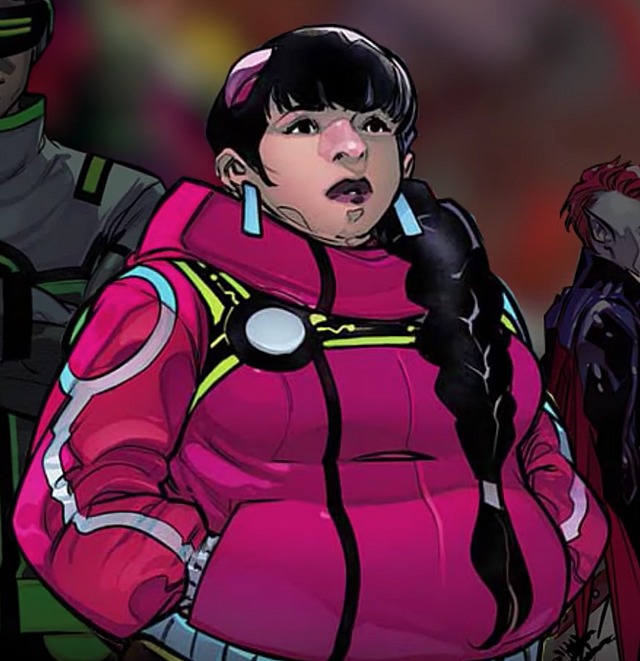
Important distinction: Sizable performers of color (like Da’Vine Joy Randolph or Gabourney Sidibe or Mo’Nique) represent their own “we are who we are, take it or leave it” aesthetic. But a fat superhero is sending out a whole different signal.
Marvel comics has announced that New Warriors comic book (vol. 6) will street on 4.15.20.
You Tube comment #1: “’80s characters reflected what was fun about the 80s. ’90s characters reflected what was cool about the 90s. Modern characters reflect only the STUPIDEST aspects of our time. Great.” You Tube comment #2: “Honestly, Safespace and Snowflake feel more like jokes about LGBT people.” You Tube comment #3: “I guess the villain is called ‘white privileged heterosexual predator‘ or something like that.” You Tube comment #4: “It’s sad seeing Stan Lee‘s legacy being burned down like this is…this is wrong.” You Tube comment #5: “I was expecting the next thing out of his mouth to be ‘they don’t actually fight the villains — they just start hashtags on twitter to get them cancelled.'”
Respect for Kenny “Captain Trips” Rogers, who passed today at age 81. Everyone knows the kindly smile, the white beard and the legendary “Gambler” lyrics (“know when to hold ’em, when to fold ’em”). But Rogers’ 1967 recording of Mickey Newbury‘s “Just Dropped In (To See What Condition My Condition Was In)” — otherwise known as the bowling dream fantasy song in The Big Lebowski — is what first came to mind when I heard the news.
Then again Rogers’ laid-back conservatism — the default posture of pretty much every country music star of that era — never jibed with the mindset of a psychedelic adventurer. I don’t know if Rogers actually tripped or not, but I always had my doubts. Anyone who’d claim to have “broken” his mind (whatever the hell that means) doesn’t sound like the kind of guy who could ever sail into the mystic.
Update: This morning I posted a riff about “Ruby, Don’t Take Your Love To Town” — it’s in the comment thread.
Hugs and condolences to Rogers’ family, friends, colleagues, fans, etc.